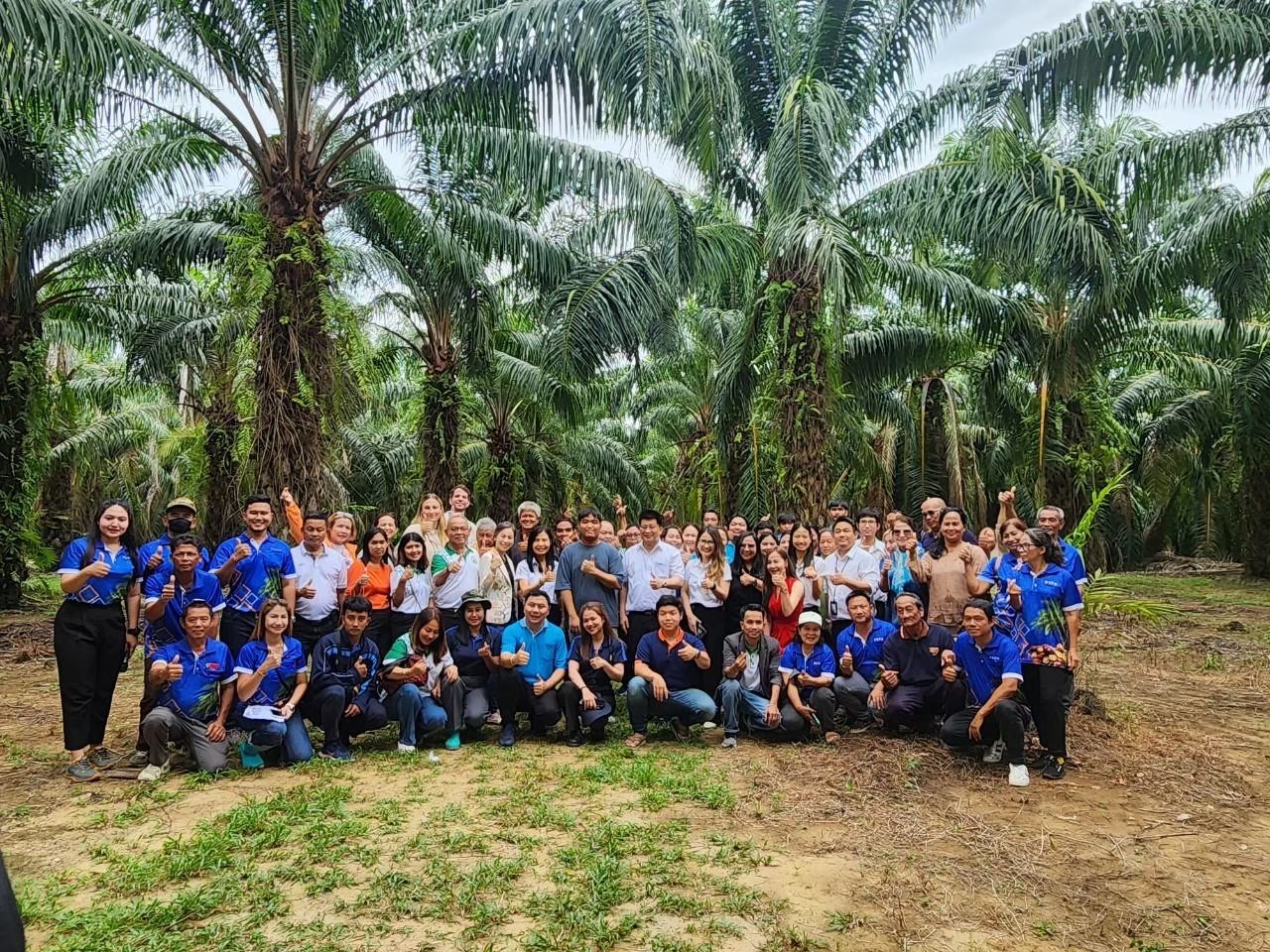
About the group
Number of smallholders: 69 (46 Men, 23 Women)
Total Land Area: 317 Ha
Status: Certified
Group location: No. 101, Moo 5, Bangwan Sub-district, Khruraburi District, Phang-Nga Thailand 82150
Country: Thailand
On-going Facilitator:
SUSTAINABILITY JOURNEY STORY
Tubtim & Chaiyo Palm Oil Community Enterprise Network
RSPO Across Thailand – Daring to Dream Big
“Our products meet the required standards—whether we sell to a factory or for export, they are recognised and accepted.”
————————————–
— states Nontiya Rodsakun, the group manager, describing the achievements of the Tubtim & Chaiyo Palm Oil Community Enterprise Network, which was recently certified under the RSPO standard.
The group was established in 2013 in the Kuraburi District of Phang Nga Province by farmers united under a shared vision: to produce palm oil in accordance with RSPO standards—an internationally recognised benchmark promoting sustainable palm oil production across three key dimensions: economic, social, and environmental.
“Our network reached out to Suksomboon Palm Oil Co., Ltd., Phang Nga branch—an oil palm mill in our area—to request financial support, particularly for registration fees, training, and certification audits,” shares Nontiya.
Eventually, in July 2024, the group received official certification, starting with 69 members representing 318 hectares of certified farmland.
“Once certified, all members are required to undergo training in five modules and maintain records of garden management, income, and expenditure. Previously, farmers managed their farms based on personal habits, such as choosing fertilisers according to individual preference. After joining the programme, they had the opportunity to exchange knowledge, visit well-managed plantations, and learn from one another. Witnessing how better practices led to increased yields and improved crop quality inspired many farmers to adopt new approaches. As a result, productivity increased, quality improved, and better prices followed,” explains Nontiya.
Reflecting on this transformative journey, Nontiya shares her insights into the positive changes experienced by the network members and notes
that the group is now aiming to reduce their dependency on chemical fertilisers by exploring compost production, both to cut costs and enhance long-term sustainability.
According to Nontiya, “We’d like to learn how to make compost. Some types of compost already contain N, P, and K, meaning we could reduce the need for specific chemical fertilisers. In the past, we didn’t use compost much, but now, with support from the mill, farmers have begun applying palm kernel waste from oil extraction directly to plantations. Not only does it serve as a fertiliser, but it also suppresses weeds. Grass cutting is expensive, but ground cover—whether mulch or live cover—helps to minimise costs. As a result, we no longer rely on chemical herbicides.”
Enhanced management practices have led to higher yields while simultaneously lowering production costs—a formula for success derived from experience on the ground. Building on these improvements, additional support from the mill has further incentivised farmers to adopt sustainable practices.
Nontiya highlights: “Another benefit is the incentive provided by the mill, which motivates farmers to continue producing high-quality, RSPO-compliant palm oil. The factory offers a bonus of 0.15 baht per kilogramme for certified RSPO palm oil, or alternatively, an annual dividend through the RSPO credit system. Certification proves our palm oil is sustainably sourced without encroaching on forests or harming wildlife. Additionally, the mill contributes 0.05 baht per kilogramme to our group’s fund, which covers costs such as training, onboarding new members, and conducting field inspections—allowing us to grow and prepare future member groups.”
Currently, Nontiya and her committee are reviewing plantation maps as part of the RSPO internal assessment process, in preparation for the official third-party audit.
“Each plot must not exceed 50 hectares per member and must have official land documentation or endorsement from local village or subdistrict authorities. The land must not encroach on protected forest zones, watershed forests, or wildlife sanctuaries. For groups without mill support, covering registration and audit costs can pose a significant challenge. Fortunately, in our case, Suksomboon Palm Oil Co., Ltd., which is itself RSPO certified, covers all related costs. This arrangement benefits the factory by enabling RSPO certified oil to be sold at premium prices,” explains Nontiya.
Following the certification of the first cohort of 69 members, the network has now opened its doors to a second group of 153 applicants, with certification expected by 2025.
“Now, all stakeholders—including provincial and district agricultural offices—recognise the value of RSPO. They agree this is the right direction, benefiting farmers across the board. This is why we dare to dream of expanding RSPO certified palm oil across Phang Nga and Ranong, eventually forming a nationwide network. Achieving this may take three to four years at the provincial level, but we believe it’s possible across Thailand as well.
This is a bold ambition from smallholder farmers, yet one that seems increasingly achievable with the right support and a united network,” Nontiya concludes.
Project Impact
Total area covered by the project
317 Ha
Number of smallholders benefitting from this project
69 Smallholders
Number/percentage of women supported by this project
33.33% women in this project
How you can support
Despite obtaining RSPO certification, the Tubtim & Chaiyo Palm Oil Community Enterprise Network is still far from the end of its journey. Achieving growth requires a deeper knowledge, greater financial resources, and improved group management.
Their farmers are keen to learn, motivated, and already seeing improved yields. However, they still lack in-depth expertise, such as the skills to produce compost or manage farms more efficiently, and require start–up funds for new members eager to join the RSPO system.
This moment presents a unique opportunity for organisations seeking to make a lasting social and environmental impact.
Your support today can ignite a movement that changes lives for generations to come.
GROUP CONTACT
Representative Contact
Surapong Chorkchaisomkid | Group Manager | [email protected] |
Miss Nonthiya Rodsakun
Database Management
(+66) 98 023 0863
[email protected]
IMAGE GALLERY

Tubtim & Chaiyo Palm Oil Community Enterprise Network
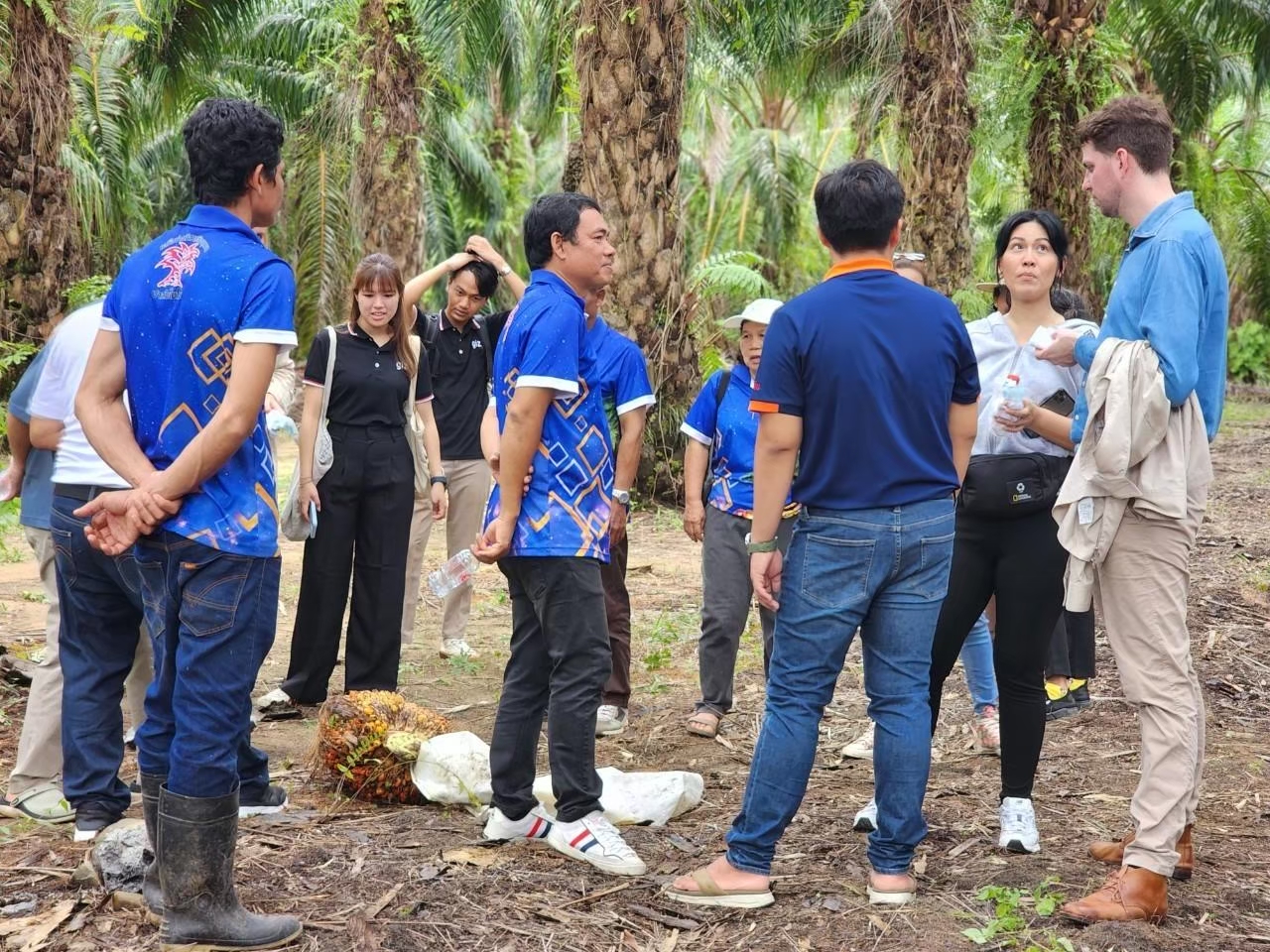
Tubtim & Chaiyo Palm Oil Community Enterprise Network
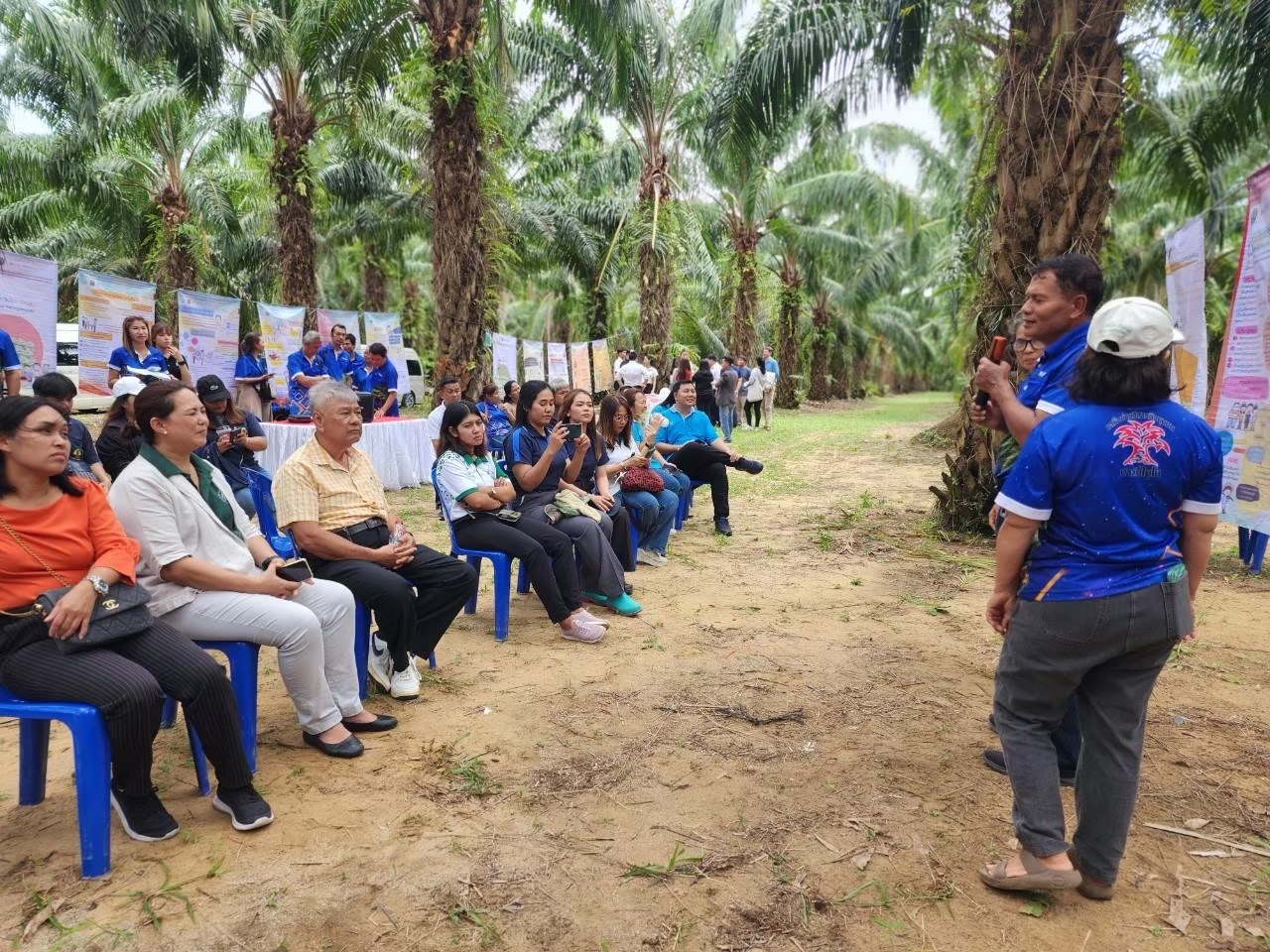
Tubtim & Chaiyo Palm Oil Community Enterprise Network
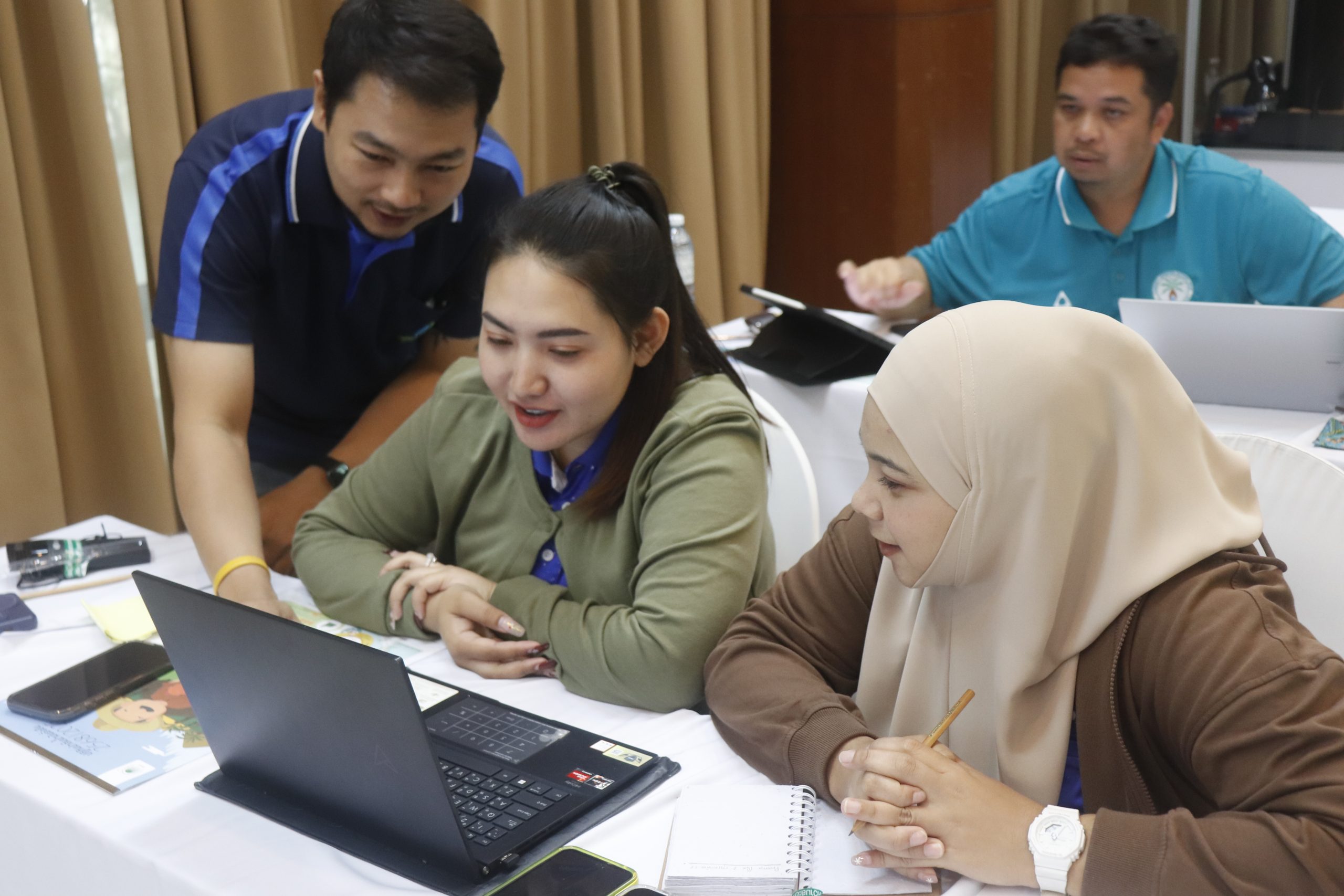
Tubtim & Chaiyo Palm Oil Community Enterprise Network
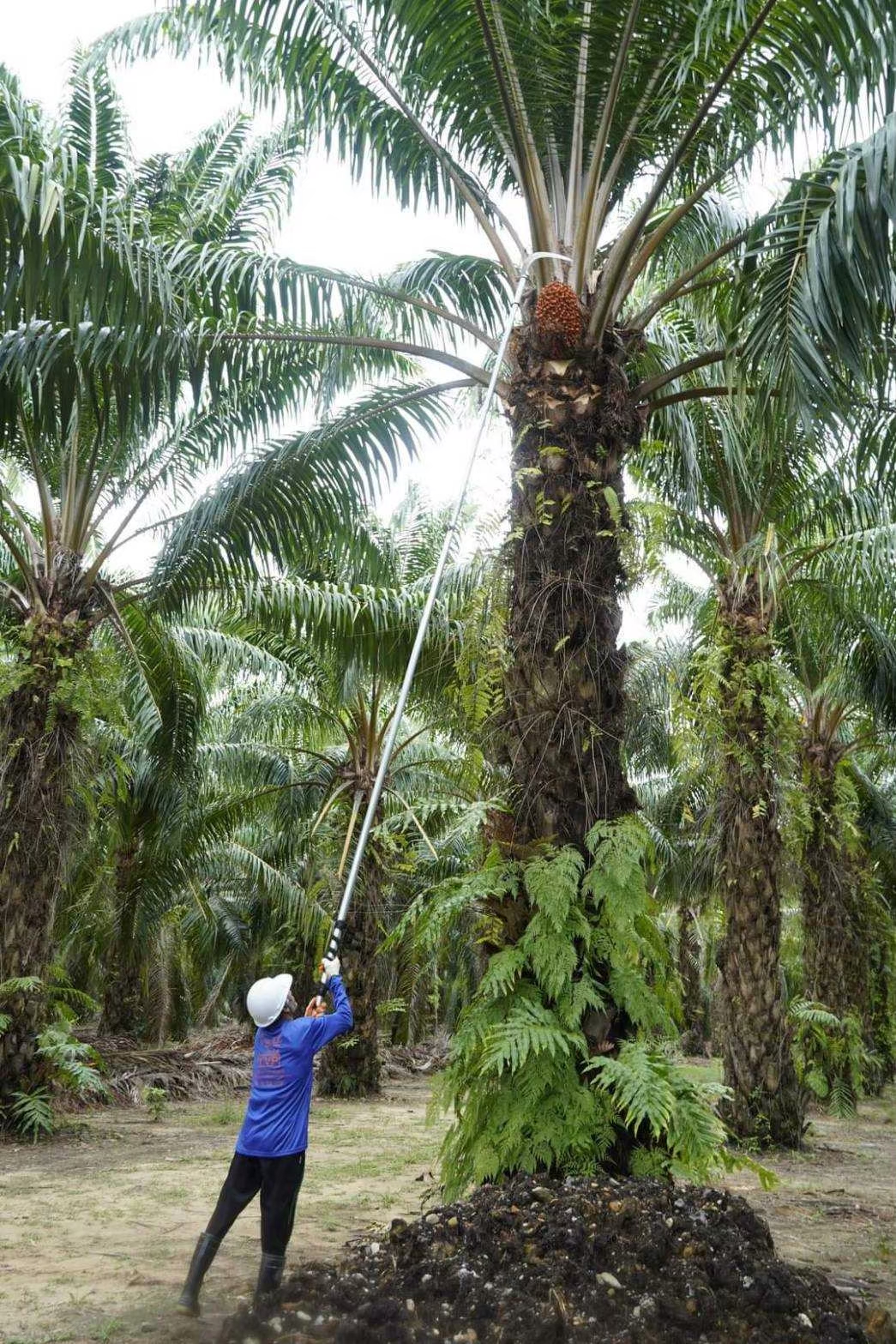
Tubtim & Chaiyo Palm Oil Community Enterprise Network
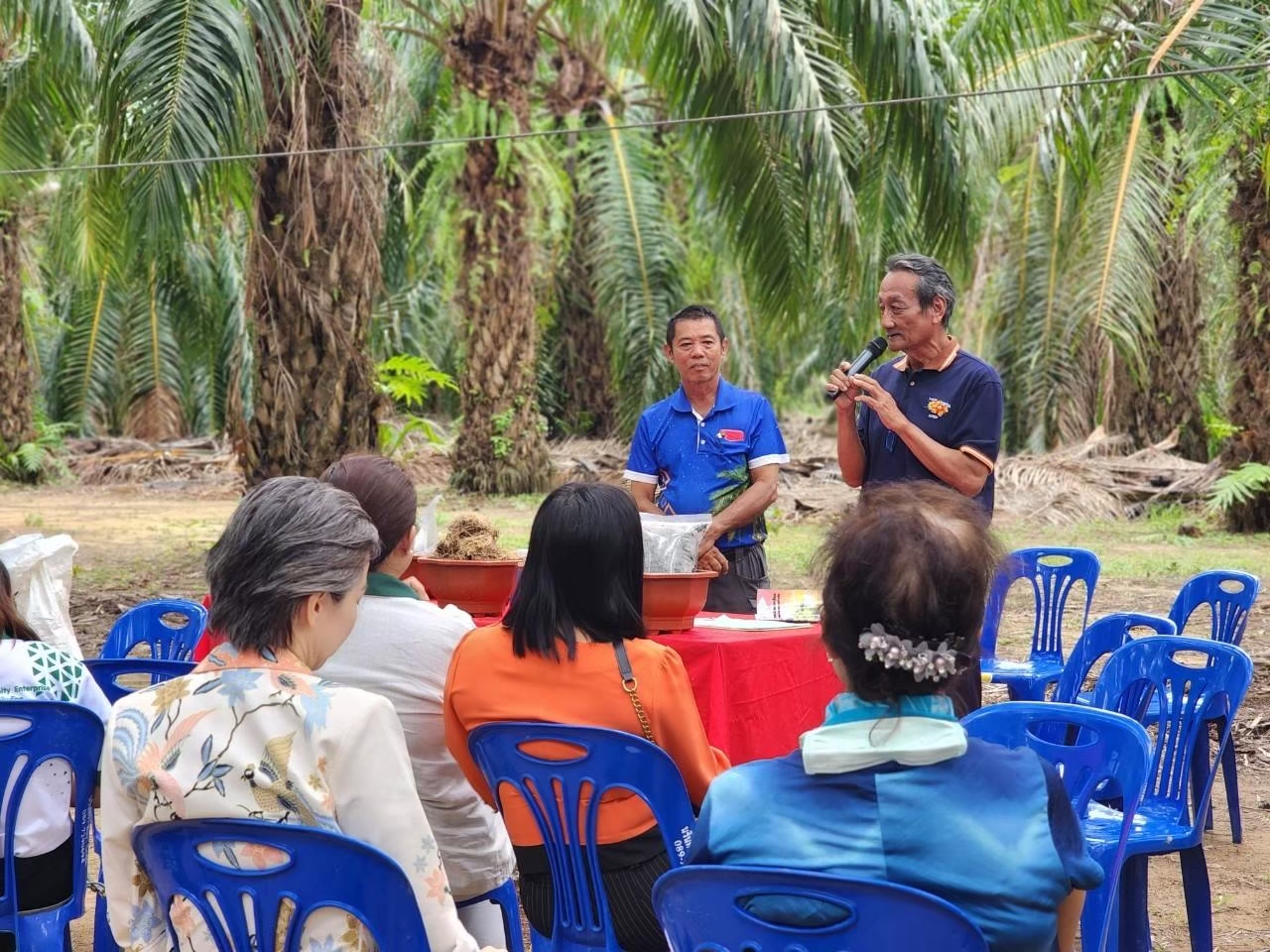
Tubtim & Chaiyo Palm Oil Community Enterprise Network
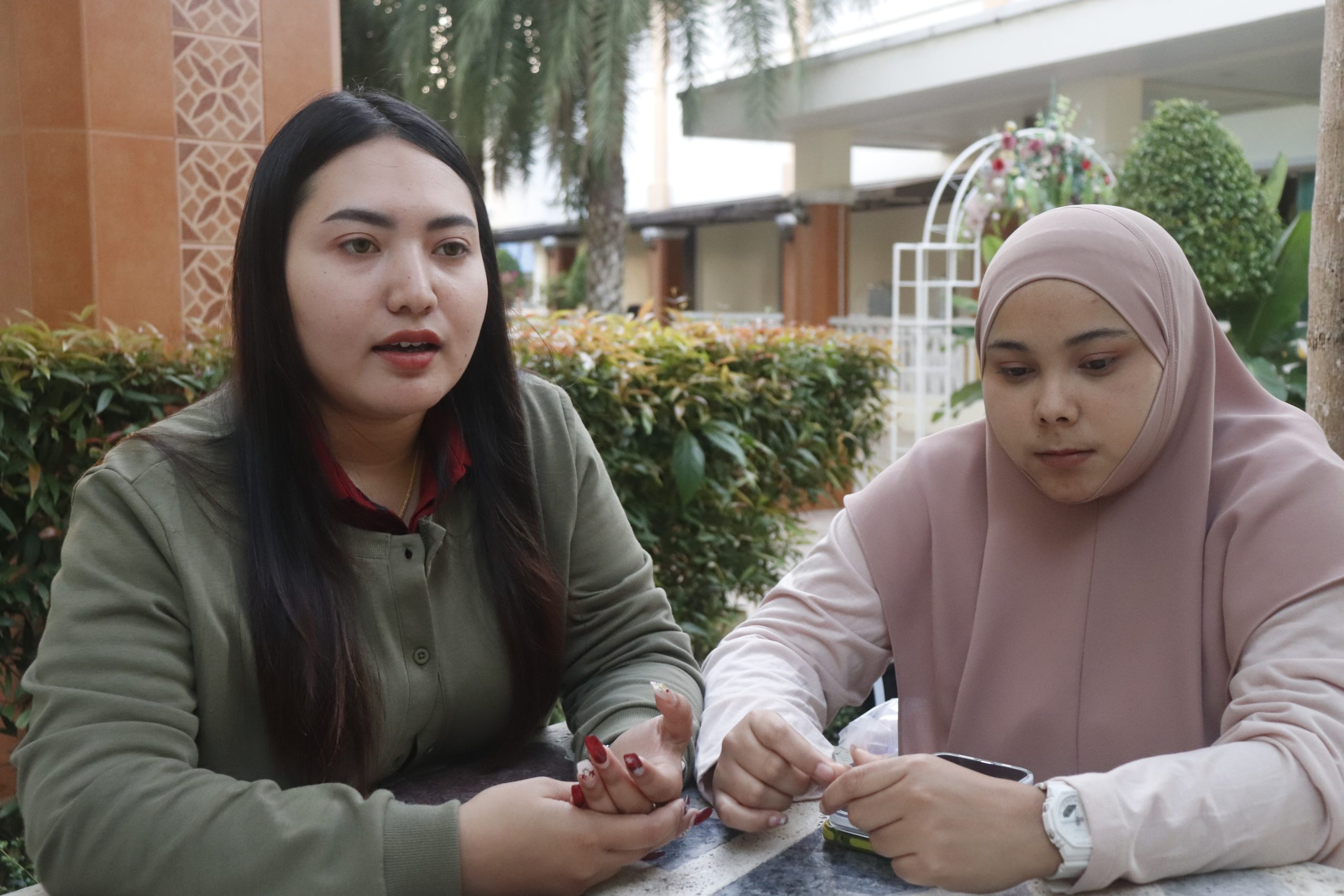
Tubtim & Chaiyo Palm Oil Community Enterprise Network



